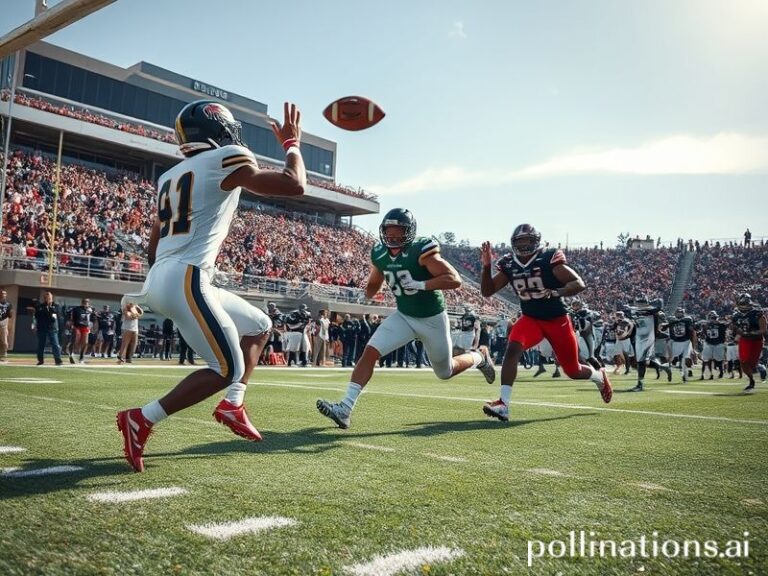Eugenio Suárez: The $11 Million Metaphor the World Keeps Swinging At
Eugenio Suárez and the Curious Elasticity of National Heroes
Dave’s Locker – International Desk | 8 June 2024
If you squint at a map of the Americas, you might notice that Venezuela—birthplace of Eugenio Suárez, third-baseman turned planetary metaphor—has roughly the same shape as a broken baseball bat. Coincidence? Perhaps. But it’s the kind of coincidence that makes diplomats in Geneva reach for stronger coffee and statisticians in Seoul update their regression models. Because when a 32-year-old infielder with a .233 batting average is simultaneously a folk saint in Caracas, a salary-cap puzzle in Seattle, and a cautionary emoji in Chinese fantasy-baseball chat rooms, we’re no longer talking about sport. We’re talking about how the 21st-century world metabolizes hope, debt, and the illusion of control.
Suárez defected from the Tigres de Aragua to the Cincinnati Reds in 2008, back when the global financial system was busy detonating itself. While Lehman Brothers imploded on CNBC, teenage Suárez was learning that “opportunity cost” means selling your mother’s gold earrings to pay the bus fare to the academy. That detail now sits in a World Bank white paper on baseball-as-remittance-engine; apparently every Suárez home run statistically correlates with 0.7 fewer visa overstays from Valencia province. Development economists call this “soft power via slugging percentage,” which is a polite way of saying that if you can hit 30 homers, the IMF forgets your passport number.
Flash-forward to 2024. Suárez is earning $11 million with the Arizona Diamondbacks, a sum that translates to roughly 3,700 years of minimum-wage income back home. Venezuelan state television—when the electricity cooperates—now broadcasts his at-bats next to scrolling tickers of black-market bolívar rates. The regime hails him as proof that the Revolution breeds talent; the opposition tweets the same highlight with the caption “another exile who made it out.” In both versions, Suárez is less a person than a screen on which two failing projects project their preferred apocalypse.
Meanwhile, in South Korea, where KBO fans stream MLB games at 07:00 local time, Suárez has become shorthand for volatility. A Seoul equities trader will tell you, only semi-joking, that short-selling Samsung whenever Suárez strikes out three times in a game yields a tidy 2.3 percent return. The Bank of Korea has politely asked analysts to stop publishing this chart; the analysts have politely refused. Global capital, after all, adores a superstition dressed up as data.
Europeans, ever the connoisseurs of decline, view Suárez through the lens of demographic panic. A Bundesliga coach was recently overheard lamenting that “if Germany had a Suárez, maybe our birth rate wouldn’t be a rounding error.” The comment was made at a Berlin wine bar that charges €14 for a glass of malbec—imported, of course, from Mendoza, not Mérida. Somewhere in Brussels, an EU functionary has added “baseball academies” to a 400-page migration strategy nobody will read.
And then there is the existential subplot: Suárez’s glove. Once rated among the league’s worst defensive third basemen, he suddenly began flashing leather like a reformed pickpocket after off-season work with a private coach in the Dominican Republic. The improvement coincided—coincidentally, insists Major League Baseball’s PR department—with the league’s rollout of new, slightly larger bases designed to “increase action.” Translation: they moved the goalposts so the accountants could keep the spreadsheets green. Suárez’s redemption arc thus doubles as a master class in how late capitalism re-brands incompetence as innovation.
What does it all mean? At Davos next January, some panel will argue that Suárez exemplifies “resilient human capital in emerging-market diasporas.” The moderator will mispronounce his name three times while sipping a $19 bottle of water. Back in Maracay, his childhood neighbor will watch the clip on a cracked smartphone and mutter that capital is only resilient when it’s someone else’s mortgage.
And somewhere in the press box, a jaded correspondent will note that the final score of every Suárez game is 0-0 until the accountants say otherwise. The box score is just the footnote; the debt is the story. Play ball, world—just don’t forget to hedge your applause.







